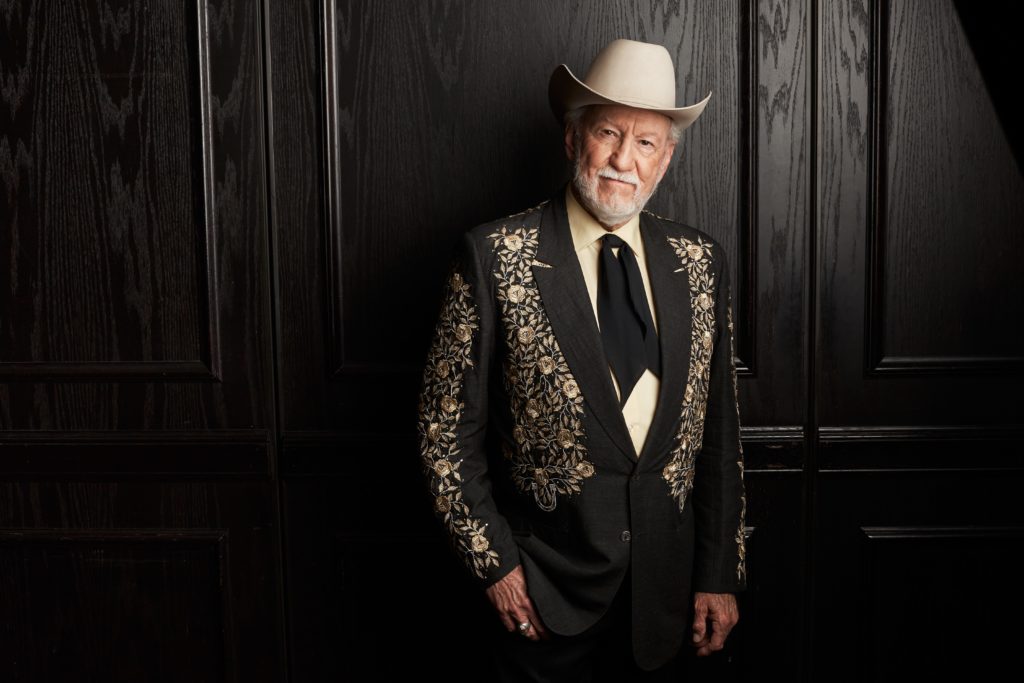 One of the most influential bluegrass musicians and bandleaders in the genre’s history, Doyle Lawson has sustained an impeccable career for close to six decades. Perhaps best known for his deep integration of traditional gospel quartet singing into the sound of his band, Quicksilver, Lawson’s reputation among musicians and devoted fans endures also for his training of dozens of young players and singers as they passed under his tutelage and studied his distinctive, intense bluegrass style.
One of the most influential bluegrass musicians and bandleaders in the genre’s history, Doyle Lawson has sustained an impeccable career for close to six decades. Perhaps best known for his deep integration of traditional gospel quartet singing into the sound of his band, Quicksilver, Lawson’s reputation among musicians and devoted fans endures also for his training of dozens of young players and singers as they passed under his tutelage and studied his distinctive, intense bluegrass style.
Born in 1944 in Ford Town, an unincorporated town in Sullivan County, near Kingsport, Lawson’s childhood was steeped in the music of his family and community. His father, mother, and sister all sang gospel music as part of a cappella trios and quartets at area churches and religious revivals. At the same time, the Lawsons listened devotedly each Saturday night to broadcasts of the Grand Ole Opry from Nashville. Young Doyle was taken especially with the music of Bill Monroe during the pivotal early years when the bluegrass style and band structure was just taking shape. It seemed natural then for Lawson to choose the mandolin—just like his hero Monroe—as his instrument. He borrowed his first mandolin at age 11 from a member of his father’s gospel quartet, and soon also taught himself the five-string banjo and guitar.
At age 14, Lawson met bluegrass star Jimmy Martin in Sneedville, TN. The two men formed a connection, and four years later, in February 1963, Lawson moved to Nashville to play banjo in Martin’s Sunny Mountain Boys. In 1966, Lawson, by then a truly gifted multi-instrumentalist, left Martin to join the band of JD Crowe. He moved between these two legendary groups for the rest of the decade. In 1971, Lawson joined yet another exceptional band, the Country Gentleman. After nearly a decade and ten albums with the Gentleman, Lawson grew restless with a desire to lead a band and distill his own bluegrass sound.
In 1979, he formed the first version of Quicksilver, which included banjo player Terry Baucom, guitarist Jimmy Haley, and electric bass player Lou Reid. They released their first album in 1980 and have continued to produce acclaimed recordings steadily for four decades. Over the years, Lawson and Quicksilver have been lauded by fans and critics for their nearly machine precision harmonies and virtuosic vocal arrangements. Lawson prided himself on mentoring and developing the distinctive qualities of each musician under his tutelage. As Quicksilver members eventually moved on to start their own bands, Lawson carefully recruited new musicians who could meet his exacting standards and maintain the consistency of the group’s style. Lawson jokes that Quicksilver, having had more than forty members since its formation, has functioned as a “farm team” for bluegrass musicians. For the many musicians who served stints in the band, it was no laughing matter—Lawson accepted nothing but the best from his players.
In 2021, Lawson announced that he was retiring from bluegrass music, bringing to a close one of the most consistent and consequential careers in American music. While Lawson has earned numerous awards, including induction into the International Bluegrass Music Hall of Fame in 2012 and receipt of the National Heritage Fellowship in 2006, his greatest legacy resides in the many musical careers he has shaped, and through the proliferation of the highest musical values that he has extolled for all this time.

